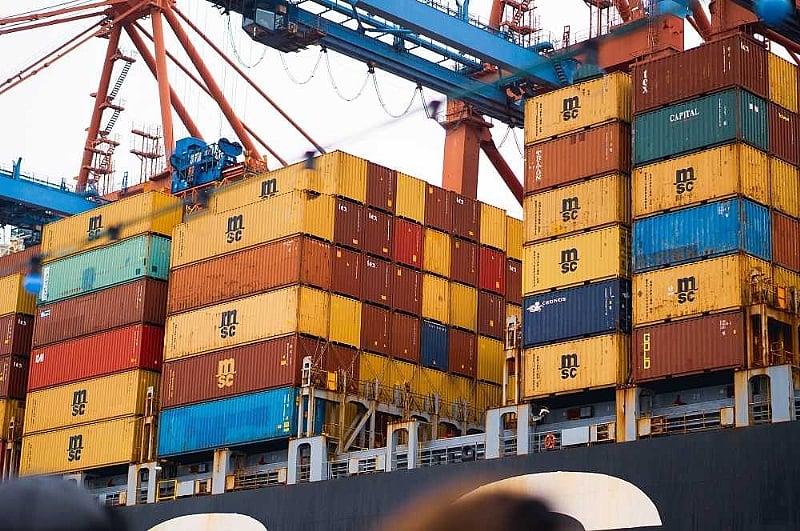The United States, under the Trump administration, embarked on a significant shift in trade policy, implementing protectionist measures that marked a departure from decades of established practice. This policy shift, characterized by a sharp increase in tariffs, has sent ripples across the global economy, particularly impacting emerging markets. However, amidst this turbulent trade landscape, Ghana stands out as a potential beacon of resilience in Sub-Saharan Africa. New research by Fitch Solutions indicates that Ghana is among the least vulnerable economies in the region, positioned to weather the storm of rising U.S. tariffs with relatively minimal disruption. This resilience stems from a confluence of factors, including a diversified export portfolio and a limited reliance on the U.S. market.
Fitch Solutions’ analysis ranks Ghana 42nd out of 48 Sub-Saharan African economies in terms of vulnerability to the new U.S. trade measures. This ranking suggests that the impact on Ghana will be muted compared to many of its regional counterparts. The country is projected to face an effective tariff rate of 10%, a significantly lower burden than that anticipated for countries like the Democratic Republic of Congo and Somalia. This relatively low exposure is primarily attributed to Ghana’s diversified export base, which reduces its dependence on any single market, including the United States. The country’s economy does not heavily rely on exporting goods to the U.S., thereby limiting its direct exposure to the newly imposed tariffs.
Despite this overall positive outlook, Fitch Solutions cautions that certain sectors within Ghana’s economy may face some headwinds. Specifically, cocoa, textiles, and certain agricultural products, which are key components of Ghana’s non-oil export sector, could experience a decline in competitiveness within the U.S. market. As U.S. importers grapple with increased costs due to the tariffs, they may seek alternative sources for these goods, potentially impacting demand for Ghanaian products. Although these sectors may encounter challenges, the overall impact on Ghana’s economy is expected to be manageable due to the country’s diverse export profile and limited reliance on the U.S. market.
While Ghana navigates this shifting trade landscape with relative stability, other Sub-Saharan African countries face a more precarious situation. The region is grappling with renewed macroeconomic pressures, particularly among oil-dependent economies. The decline in Brent crude prices, which have fallen by nearly 15% since early April 2025, has exacerbated fiscal fragility across the continent. Oil-producing nations that rely heavily on oil revenues for their budgetary needs are particularly vulnerable to these price fluctuations. The drop in oil prices threatens to create significant budget deficits and put pressure on national currencies.
Angola and Nigeria are highlighted as particularly vulnerable to the decline in oil prices. Both countries based their 2025 budgets on oil price benchmarks of $70–$75 per barrel, a level that now appears overly optimistic given the current market conditions. If oil prices continue to decline, these countries could face substantial revenue shortfalls, potentially leading to fiscal crises. The pressure on government finances could necessitate cuts in public spending, impacting essential services and potentially triggering social unrest. Furthermore, the decline in oil revenues could lead to a weakening of their currencies, making imports more expensive and further exacerbating economic challenges.
The dramatic increase in U.S. tariffs, which have surged from an average of 2.5% to 27% since the beginning of 2025, represents a significant departure from historical norms and a level not seen in over a century. The Trump administration justifies these aggressive measures as a necessary response to what it perceives as unfair trade practices by other countries. The administration argues that these tariffs are essential for protecting American industries, promoting domestic manufacturing, and ultimately strengthening the U.S. economy. The new tariffs encompass both broad-based duties and sector-specific levies, reshaping trade dynamics across emerging markets. While many countries are grappling with the implications of these changes, Equatorial Guinea stands out as the least impacted nation in the Sub-Saharan African region, according to Fitch Solutions’ analysis. This suggests that despite the widespread impact of the U.S. trade policy shift, certain economies, due to their unique trade relationships and economic structures, are positioned to navigate the changing global trade landscape with greater resilience.


